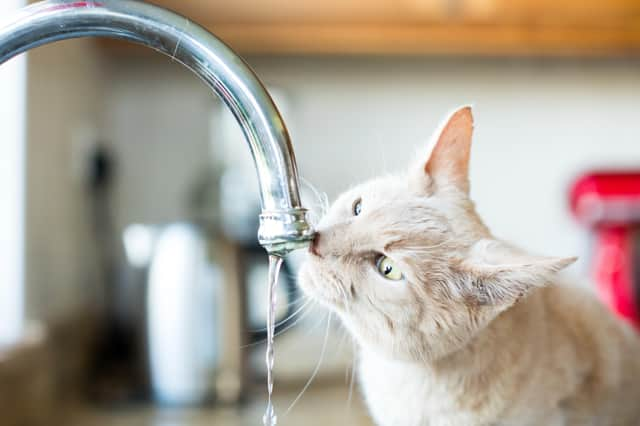Charity’s top tips to keep cats cool as temperatures soar - find out more here


Cats Protection is keen to remind owners of the health risks of sun exposure, such as dehydration, exhaustion and sunburn.
In the worst cases, sun-related cancer can be a problem for cats, especially on their ears and noses.
The charity has issued warm weather advice for cat owners:
Advertisement
Hide AdAdvertisement
Hide Ad○ Keep pet cats indoors when the sun is at its hottest, typically between 10am and 3pm.
○ Speak to a vet about suitable sunscreen for pet cats.
○ Provide opportunities for shade outdoors, such as cat hides, large cardboard boxes, or plant plots placed close together.
○ There is a risk of your cat becoming dehydrated in the heat, so always provide an outdoor water source.
○ To stop cats feeling overheated, place a plastic bottle with frozen water inside a towel and place it in an area that the cat frequently visits.
Advertisement
Hide AdAdvertisement
Hide AdSarah Elliott, central veterinary officer for Cats Protection, said: “White and pale-coloured cats don’t have a pigment called melanin in their skin, which is what protects humans from sunlight.
“This can leave them vulnerable to sun damage - usually around the ears.
“Over time, the damage caused by the sun’s ultraviolet rays can increase the risk of developing skin damage and cancer. Cats with unpigmented noses or ears are also much more susceptible to sun damage and require additional sun protection.”
Click here to find out more information.
For advice to avoid sunburn download Cats Protection’s guidance at www.cats.org.uk/media/10837/vet_7701-sunburn-information-sheet-web.pdf